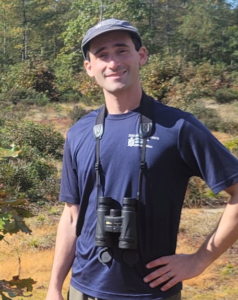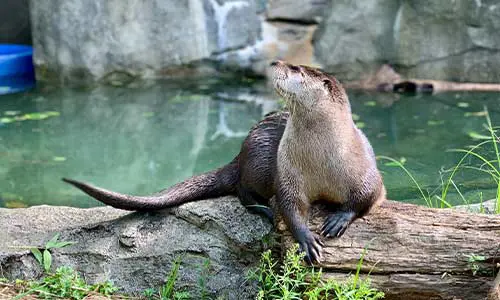As some of you may remember from our previous post on the topic, Zoo New England has been trying to get to the bottom of mysterious mortalities in wood turtles at several of our field sites. We’re pretty sure predators are to blame, and our initial camera trapping revealed some potential culprits, but we’re excited to say that this year the survey efforts will be stepping up a notch.

Dr. Matthew Kamm, who has worked for the Field Conservation team in several capacities since 2019, recently moved in to a Postdoctoral Fellowship with the department focused on studying wood turtle predation. This year’s game cameras will be set up in specific areas at each site where we known our turtles spend a lot of time, as well as at a few nearby locations where we haven’t tracked turtles before. Comparing how many potential predators we see in the high-traffic areas vs. the others may tell us something about whether our culprits are hunting specifically for turtles or just picking them up opportunistically.

Camera traps and our 3D-printed “mock turtles” are going to be key survey tools for learning more about predation, but we’re also hoping to take things even further. Wood turtles found dead can be DNA swabbed for saliva and other physical evidence that a hungry predator or scavenger left behind, just as with human crime scenes. Together with partners, we hope to be able to identify what species are involved most often in actual wood turtle deaths. By collecting data from some of our own Zoo residents (like Dunkin and Oliver, Stone Zoo’s river otters) we can see how real animals handle replica wood turtles and collect DNA samples to be tested against wild findings.
One final exciting opportunity is a collaboration with Hardshell Labs – the people who created the TechnoTort to save desert tortoises from raven predation by training ravens with decoys attached to aerosol spray devices. The potential for deploying decoy wood turtles that will not only gather data for us but also discourage predators from attacking wood turtles in the future would allow us to safeguard this vulnerable species with a minimum negative impact on natural predators, which have their own ecological roles to play. Check out the video below to see the TechnoTort in action!
